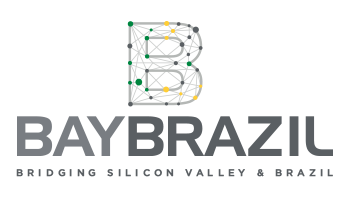Grupo SEB (Educational Brazilian System) is the largest K-12 private group in Brazil with over 80.000 students. It was founded 50 years ago by Chaim Zaher, son of Lebanese immigrants who moved to Brazil looking for new opportunities. This year, Chaim Zaher initiated the group’s international expansion with the 95% acquisition of Canada’s Maple Bear operations in Brazil and 50% stake on American company Digital Media Academy. In our conversation, he talks about the group’s investments, its innovative Concept school and the role of technology in education.
BayBrazil: You just acquired a 50% stake on American company Digital Media Academy. How much did you invest? How does it fit into your global strategy?
Chaim: It was an investment of US$8 million. It fits just perfect in our global strategy of offering a global, up-to-date and excellent education for our students, through an international network of schools. The Digital Media Academy not only has an excellent course portfolio but also operates in the most prestigious universities in the US and Canada, such as Stanford, Chicago, McGill – among others.
BayBrazil: Last year you also acquired 95% of Canadian Maple Bear Global Schools. Is the $50 million investment paying off so far?
Chaim: Sure it is. What I can say is that Maple Bear was an excellent investment and with some slightly changes we’ve made so far – some little adjustments – this business, that already had excellent economic and academic results, is now one of such great potential for us.
BayBrazil: As part of your international expansion you are considering a potential launch of Concept School in Silicon Valley. What is Concept school and why Silicon Valley is the right place for it?
Chaim: The Concept School is the next big thing in education for us. It’s a vanguard school that basically is disrupting all the things that don’t work out anymore in the k-12 arena. The main focus for Concept School is on the students, how they learn, their interests and to provide the best experience a student can have in a school. We believe Silicon Valley is the right place for it, since it’s where all the disruptions and innovations – in several areas – are happening. And if this Concept School is disrupting education, what best place to be than in the Silicon Valley area.
BayBrazil: You are a very successful entrepreneur with a career of over 40 years in education. Tell us how everything started.
Chaim: Making a long story short, everything started in countryside Brazil, with one school, a big dream, working very hard and always anticipating the next movements of the market. We already delivered on all the opportunities that appeared on education market (courseware, high education and always k-12). Today we’re the largest K-12 private player in Brazil with more than 80.000 students and nearly 90 schools in Brazil.
BayBrazil: How are Brazilian schools adopting new technologies? How important it is for them to embrace new models?
Chaim: Technology is part of our DNA and as we have such a commitment to provide the best experience to our students and academic excellence, the technology is an essential part of that. We believe that technology can enhance the teaching and the learning process and to provide an optimized student experience and excellence.
BayBrazil: Income inequality continues to be one of the greatest problems in Brazil. As a result, the poorest students are the ones who attend private universities. How can there be an improvement on access to higher education?
Chaim: There are excellent private universities in Brazil but I think that the only way to improve access to a better higher education is essentially improving the basic (k-12) education. Our experience shows that the results and the competencies developed by students on the k-12 years are not only essential but the main differential to a successful life, not only from a “business” perspective but also from a “social” perspective. The school is not only where a student absorbs cognitive knowledge, but where the kids learn how to live in society, how to better work in teams, how to negotiate, all very important skills to a successful life.
BayBrazil: There is a shortage of high-skilled labor around the world. Is it an opportunity for educational organizations?
Chaim: No question about it. The world is changing and as educators, we believe in the education as a way to change the world, through the people. All innovations and new technologies that emerge daily will provide a challenge to the future, as they change the human relations and the business world. We need more skilled labor on new capabilities that we don’t even know for sure what they are now. So, education is key to people be able to adapt to this new, fast-pacing world. That’s why we work so hard on SEB and invest every day to provide the best, global and innovative education to our students worldwide.








